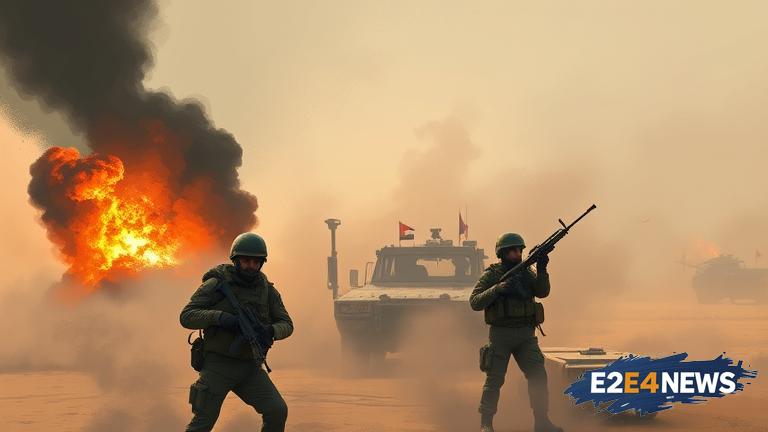The Israeli government has made a decision to take full control of the Gaza Strip, a move that is expected to escalate tensions in the region. The Israel Defense Forces (IDF) may enter areas where hostages are being held, in an effort to rescue them and assert control over the territory. The decision comes amid rising violence and unrest in the Gaza Strip, with militant groups such as Hamas and Islamic Jihad launching attacks against Israeli targets. The Israeli military has been conducting operations in the Gaza Strip for several weeks, with the goal of weakening the militant groups and restoring calm to the region. However, the situation remains volatile, with both sides suffering casualties and the humanitarian situation in the Gaza Strip continuing to deteriorate. The Israeli government has faced criticism for its handling of the situation, with some accusing it of using excessive force and others calling for a more diplomatic approach. The international community has also been involved in efforts to broker a ceasefire and resolve the crisis, with the United States, European Union, and other countries urging restraint and calling for a return to negotiations. Despite these efforts, the situation remains unresolved, and the decision by Israel to take full control of the Gaza Strip is likely to further escalate tensions. The IDF has been preparing for a potential ground invasion of the Gaza Strip, with troops and equipment deployed along the border. The military has also been conducting airstrikes against militant targets in the Gaza Strip, in an effort to weaken the groups and disrupt their ability to launch attacks. The Gaza Strip has been under Israeli blockade since 2007, with restrictions on the movement of people and goods in and out of the territory. The blockade has had a devastating impact on the economy and humanitarian situation in the Gaza Strip, with high levels of poverty and unemployment. The decision by Israel to take full control of the Gaza Strip is likely to exacerbate the humanitarian crisis, with the potential for further displacement and suffering for the civilian population. The international community has a responsibility to act to prevent further escalation and to work towards a resolution to the crisis. This can be achieved through a combination of diplomatic efforts, economic support, and humanitarian assistance. The United States, European Union, and other countries must work together to pressure Israel and the militant groups to agree to a ceasefire and return to negotiations. The situation in the Gaza Strip is complex and multifaceted, with deep-rooted historical, political, and economic factors contributing to the crisis. A lasting resolution will require a comprehensive approach that addresses the underlying causes of the conflict, including the Israeli-Palestinian conflict and the broader regional dynamics. The decision by Israel to take full control of the Gaza Strip is a significant development in the crisis, and it remains to be seen how the situation will unfold in the coming days and weeks. The international community must remain vigilant and work towards a resolution to the crisis, to prevent further suffering and instability in the region. The Gaza Strip is a densely populated territory, with a population of over 2 million people. The territory has been under Israeli occupation since 1967, and the population has been subject to restrictions on their movement and access to basic services such as healthcare and education. The humanitarian situation in the Gaza Strip is dire, with high levels of poverty and unemployment. The decision by Israel to take full control of the Gaza Strip is likely to further exacerbate the humanitarian crisis, with the potential for further displacement and suffering for the civilian population. The international community must act to prevent further escalation and to work towards a resolution to the crisis, through a combination of diplomatic efforts, economic support, and humanitarian assistance.





